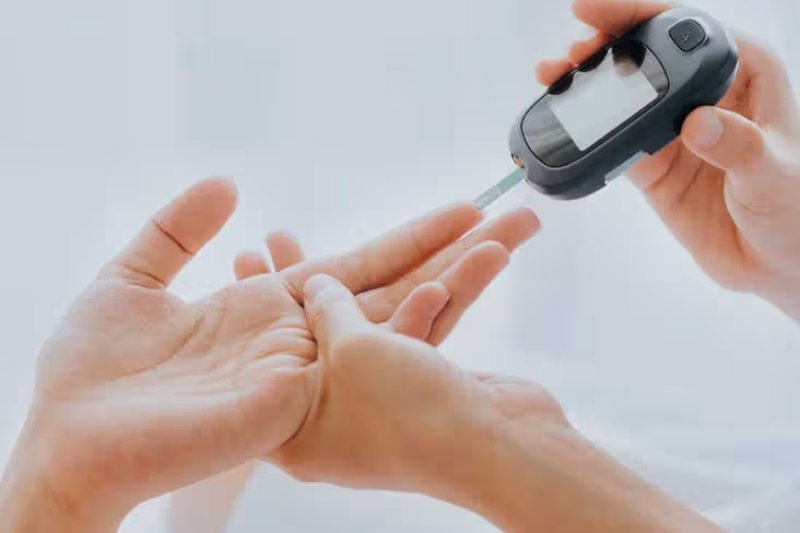Diabetes is a chronic condition characterized by persistently high blood sugar levels. While “diabetes” often conjures an image of monitoring blood sugar and insulin injections, there’s a surprising diversity within this umbrella term. This comprehensive guide delves into the different types of diabetes, their causes, symptoms, diagnosis, and treatment approaches.
Understanding Blood Sugar and Insulin: The Core Players
Before diving into specific types, let’s establish a foundation. Blood sugar, also known as glucose, is the primary source of energy for our cells. The body naturally regulates blood sugar levels through a complex interplay of hormones, primarily insulin and glucagon:
- Insulin: Produced by the pancreas, insulin acts like a key, unlocking the doors of cells and allowing glucose to enter for energy production.
- Glucagon: Also produced by the pancreas, glucagon acts like the opposite of insulin, raising blood sugar levels when they fall too low.
In diabetes, this delicate balance is disrupted, leading to chronically high blood sugar levels. Now, let’s explore how this disruption manifests in different types of diabetes.
The Major Types of Diabetes
1. Type 1 Diabetes:
- Cause: An autoimmune disease where the body’s immune system mistakenly attacks and destroys insulin-producing beta cells in the pancreas.
- Symptoms: Onset is often rapid, with symptoms like excessive thirst, frequent urination, unexplained weight loss, blurred vision, and fatigue.
- Diagnosis: Typically diagnosed through blood tests like the fasting blood glucose test, hemoglobin A1c (HbA1c) test, and sometimes an oral glucose tolerance test (OGTT).
- Treatment: There’s no cure for type 1 diabetes. Management involves lifelong insulin therapy, blood sugar monitoring, a healthy diet, and regular exercise.
2. Type 2 Diabetes:
- Cause: The most common type, accounting for around 90% of diabetes cases. Occurs when the body either develops resistance to insulin’s effects (cells become less responsive) or doesn’t produce enough insulin.
- Symptoms: Symptoms can be mild and develop gradually, sometimes going unnoticed for years. They may include excessive thirst, frequent urination, increased hunger, unexplained weight loss, blurred vision, and fatigue.
- Diagnosis: Diagnosed using similar blood tests as type 1 diabetes.
- Treatment: Treatment may include lifestyle changes like a healthy diet, increased physical activity, and weight management. Medications like oral medications, injectable medications, or a combination of both may be prescribed. Insulin therapy might be needed in some cases.
3. Gestational Diabetes:
- Cause: Develops during pregnancy due to hormonal changes that can affect insulin sensitivity.
- Symptoms: Symptoms are usually absent, and gestational diabetes is often detected during routine prenatal screening.
- Diagnosis: Diagnosed through a blood test during pregnancy, typically an OGTT.
- Treatment: Management focuses on controlling blood sugar levels through diet, exercise, and sometimes medication. The goal is to ensure a healthy pregnancy for both mother and baby. Gestational diabetes usually resolves after childbirth, but women with gestational diabetes have a higher risk of developing type 2 diabetes later in life.
4. Prediabetes:
- Cause: A condition with blood sugar levels higher than normal but not high enough to be classified as diabetes.
- Symptoms: Prediabetes often has no noticeable symptoms.
- Diagnosis: Diagnosed through blood tests like fasting blood sugar and HbA1c.
- Treatment: There’s no specific medication for prediabetes. However, lifestyle changes like a healthy diet, increased physical activity, and weight management can significantly reduce the risk of developing type 2 diabetes.
Less Common Types of Diabetes
- Monogenic Diabetes: A group of rare genetic disorders causing diabetes. Different types have varying inheritance patterns and symptoms.
- Secondary Diabetes: Caused by other medical conditions or medications that can impair insulin secretion or action. Examples include pancreatic diseases, certain medications, and hormonal disorders.
- Maturity-Onset Diabetes of the Young (MODY): A group of rare genetic types of diabetes typically diagnosed before age 25.
Risk Factors for Diabetes:
Understanding your risk factors can help with prevention and early detection:
- Family History: Having a close family member with diabetes increases your risk.
- Weight: Being overweight or obese is a significant risk factor, particularly for type 2 diabetes.
- Physical Inactivity: A sedentary lifestyle increases the risk of developing diabetes.
- Race and Ethnicity: Certain races and ethnicities have a higher risk of type 2 diabetes.
- Age: The risk of type 2 diabetes increases with age.
- Gestational Diabetes: Having gestational diabetes increases your risk of developing type 2 diabetes later in life.
- Polycystic Ovary Syndrome (PCOS): Women with PCOS have a higher risk of developing type 2 diabetes.
Complications of Diabetes:
Chronically high blood sugar levels can lead to various complications if left unmanaged. Early diagnosis and effective management are crucial for preventing or delaying these complications:
- Cardiovascular Disease: Diabetes significantly increases the risk of heart attack, stroke, and peripheral artery disease.
- Nerve Damage (Neuropathy): High blood sugar can damage nerves, leading to pain, numbness, tingling, and digestive problems.
- Kidney Disease (Nephropathy): Diabetes can damage the kidneys, potentially leading to kidney failure.
- Eye Problems (Retinopathy): High blood sugar can damage the blood vessels in the retina, potentially leading to blindness if left untreated.
- Foot Problems: Nerve damage and poor circulation in the feet can increase the risk of foot ulcers, infections, and even amputation.
- Skin and Oral Health Problems: People with diabetes are more prone to skin infections, slow-healing wounds, and gum disease.
Living Well with Diabetes:
A diabetes diagnosis doesn’t have to limit your life. By adopting healthy lifestyle habits and working closely with your doctor, you can effectively manage your diabetes and live a full and active life:
- Healthy Diet: Focus on a balanced diet rich in fruits, vegetables, whole grains, and lean protein. Limit processed foods, sugary drinks, and unhealthy fats. A registered dietitian can help create a personalized meal plan.
- Physical Activity: Regular exercise is crucial for managing blood sugar levels and maintaining overall health. Aim for at least 30 minutes of moderate-intensity exercise most days of the week.
- Weight Management: If you’re overweight or obese, losing even a moderate amount of weight can significantly improve blood sugar control.
- Blood Sugar Monitoring: Regularly monitoring your blood sugar levels helps you understand how food, exercise, and medications affect your blood sugar.
- Medication Adherence: Taking medications as prescribed by your doctor is essential for managing blood sugar levels.
- Doctor Visits: Schedule regular checkups with your doctor to monitor your blood sugar levels, discuss any concerns, and adjust your management plan as needed.
- Stress Management: Chronic stress can worsen blood sugar control. Practice stress-management techniques like yoga, meditation, or deep breathing exercises.
- Support System: Having a support system of family, friends, or a diabetes support group can be invaluable for managing diabetes and maintaining motivation.
Remember: Early diagnosis and effective management are key to preventing or delaying complications and living a healthy life with diabetes.
Conclusion
Diabetes encompasses a spectrum of conditions affecting blood sugar control. Understanding the different types, risk factors, and potential complications empowers you to take charge of your health. By adopting a healthy lifestyle, working with your doctor, and staying informed, you can manage your diabetes effectively and live a fulfilling life.
Disclaimer:
This information is not a substitute for professional medical advice. Always consult your doctor for personalized guidance on managing your diabetes.

 Diabetology1 week ago
Diabetology1 week ago
 Diabetology4 days ago
Diabetology4 days ago
 Diabetology11 hours ago
Diabetology11 hours ago
 Diabetology12 hours ago
Diabetology12 hours ago







